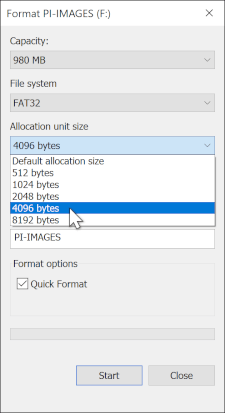FAT32
Stands for "File Allocation Table 32-bit."
FAT32 is a 32-bit version of the FAT file system. Formerly the default file system on Windows, it is now most commonly used on small removable flash drives due to its wide cross-platform support on computers, game consoles, and other devices. It supports a maximum individual file size of 4 GB, and a maximum volume size of 2 TB.
A volume formatted using a FAT file system is broken up into uniformly-sized clusters. Each volume includes an index table, called the File Allocation Table, that records every file on the disk and which clusters that file occupies. This table is updated whenever a file is created, edited, or deleted. Even if a file becomes fragmented (scattered across nonadjacent clusters), the File Allocation Table can keep track of it. FAT file systems regularly keep two copies of the File Allocation Table in case one of them becomes damaged.
Nearly all operating systems support FAT32, making it a common cross-platform file system for small removable drives. However, it has a limited feature set compared to more modern file systems like NTFS (used by Windows) or APFS (used by macOS). It lacks journaling, permissions, and other security features. A successor file system, exFAT, maintains the same cross-platform support as FAT32 while increasing the maximum file and volume size to 128 PB (or more than 128 million GB).
 Test Your Knowledge
Test Your Knowledge